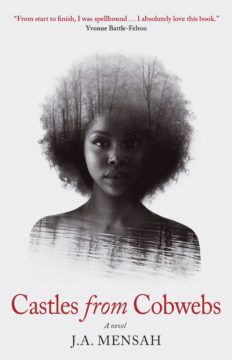Grief, HIV, and AIDS Writing

by Claire Chambers Covid-19 has led to various reactions akin to the various phases in the process of grieving. Davide Bertorelli observes in his chapter for The World Before and After Covid that ‘people have experienced differing degrees of anxiety, panic and disruption in every aspect of their lives’. Given what Bertorelli calls our current…
What Edward Said
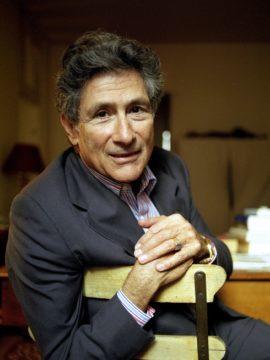
by Claire Chambers Few twentieth-century books witnessed Silver Jubilee celebrations but, 25 years after the publication of Edward Said’s Orientalism (1978), the monograph was commemorated in this way at his faculty in Columbia University, New York. Just a few months later, in September 2003, the Palestinian-American literary critic and theorist would die at 67 after protracted…
A Rich Helping of Food Writing
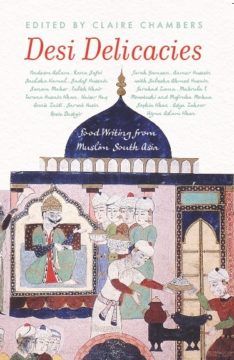
by Claire Chambers I recently edited an anthology about food from Muslim South Asia. Published by Pan Macmillan in India as Desi Delicacies, the book’s first half is made up of life writing essays, while the second half comprises short stories. To give a taste of the volume, it opens with Bina Shah’s virtuosic Foreword:…
Tandemic! Or: How I Learned to Keep Worrying And Love the Bike

by Claire Chambers This has been a terrible year with almost no redeeming features. I have written elsewhere about Covid-19’s hardships, both personal and political. Today, with a vaccine on the horizon and Trump defeated, I want to find some other crumbs of comfort that, as with Hansel and Gretel, might take us somewhere. I…
Down With The Flu

by Claire Chambers At the time of writing President Donald Trump is an inpatient at the Walter Reed Medical Center. He is of course receiving treatment for coronavirus, a virus he has repeatedly downplayed as being ‘like the flu’. Influenza causes a temperature, achy muscles, often a headache, and some upper respiratory tract symptoms such…
Controlled Passion: On the Ghazal
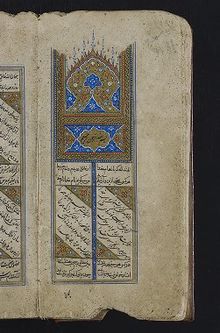
by Claire Chambers Ghazal poetry is an intimate and relatively short lyric form of verse from the Middle East and South Asia. The form thrives in such languages as Arabic, Persian, Urdu, and now English. Like the Western ode, these poems are often addressed to a love object. Influenced by ecstatic Sufi Islam, the ghazal’s subject…
Benazir Bhutto in Life, Death, and Letters (Part 2)
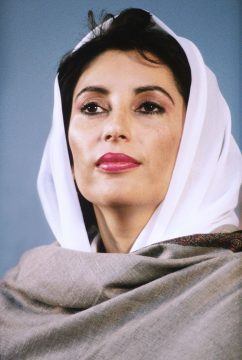
by Claire Chambers In my last post but one I pledged to continue my discussion of Benazir Bhutto’s two premierships and eventual assassination by examining the legacy she left behind for novelists to explore. Then, of course, the pandemic took hold, and I couldn’t not respond to the global health and welfare emergency. However, now…
Food in the Time of Corona
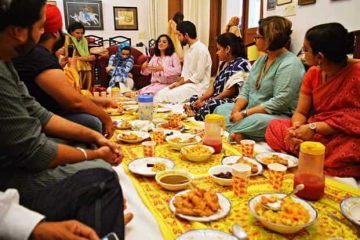
by Claire Chambers The last book I edited was about love and desire, and then I was slowly turning my attention to that other great universal pastime: food. For food is love; love in a more complex sense than mere carnality, a relationship that is layered as a paratha. The Pakistani novelist Bina Shah wrote to…
Benazir Bhutto in Life, Death, and Letters (Part 1)
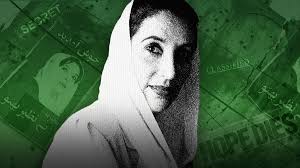
by Claire Chambers In Owen Bennett-Jones’s ten-part podcast, The Assassination, which he made for the BBC World Service in 2017, listeners become immersed in the circumstances around the murder of Benazir Bhutto ten years earlier. They learn of the security concerns, sectarian hatred, and patriarchal demands faced by even this most privileged woman. Benazir, a dynastic…
A Languorous Look at Lahore
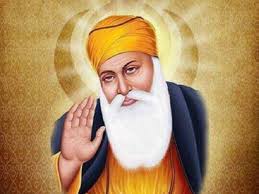
by Claire Chambers A few tall, dreamy-eyed Sikh men were on my plane to Lahore. Guru Nanak’s 550th birth anniversary celebration was taking place nearby about a month later, on 12 November 2019, so I guessed their final destination was Nankana Sahib, Guru Nanak’s birthplace. The British-Indians’ presence was a reminder, if any were needed,…
Dil Dil Pakistan
Is “Yesterday” the Future of British Asian Film?

by Claire Chambers Today I ask to what extent it is a positive development that there are no discussions of race and religion in Danny Boyle’s and Richard Curtis’s film Yesterday, whose protagonist Jack Malik is from a South Asian, possibly Muslim, background. In his essay ‘Airports and Auditions’ for Nikesh Shukla’s The Good Immigrant,…
Snapshots of a Karachi Spring
by Claire Chambers As I step, bleary-eyed, out of my PIA aeroplane from Manchester, UK, I notice a door sign warning of the danger of falling personnel. Partly amused, partly disconcerted, I head for the luggage carousel at Karachi's Jinnah International Airport. In the car on our way to my hotel, we follow a man…
Murky Waters
by Claire Chambers At a Sheikh Zayed Book Award event in 2017, Marina Warner told the audience that the Arabic root word for water and story is the same. Both nouns, she claimed, relate to the verb 'to transfer', rawin being one way to say 'storyteller', while rawiya is 'to drink one's fill' or 'to…
Pakistan’s Pleasures and Pains
by Claire Chambers In her 1989 memoir Meatless Days, Sara Suleri famously writes that 'leaving Pakistan was, of course, tantamount to giving up the company of women'. She goes on to explain that in Pakistan womanhood did not truly exist as a concept: 'we were too busy for that, just living, and conducting precise negotiations…
Heartless or Broken-hearted? Muhammad Ali Jinnah in Film and Fiction
by Claire Chambers Today is the anniversary of 70 years of Pakistan, and tomorrow it will be Indians' turn to celebrate their nation's Independence Day. I recently wrote about South Asian cultural production that portrays Nehru, the Mountbattens, and the Edwina-Jawaharlal relationship or affair. Today I turn my attention to depictions of the Quaid-i-Azam or…
Islamicate Literature, Literary Theory, and Criticism
by Claire Chambers In discussions of postcolonial and diasporic literature, questions of faith and religious identity have until recently tended to be subsumed under such categories as ethnicity, nationality, hybridity, and race. Rae Isles, a character who lectures on Middle Eastern politics in Leila Aboulela's The Translator, accordingly asserts: 'Even Fanon, who I have always…
The Real Deal: Authenticity in Literature and Culture
Authenticity is a term that often comes up in postcolonialism and especially my own subdiscipline of Muslim literary studies. But what does it mean to be authentic, and is the quest for authenticity a productive or stifling one? A fetishization of authenticity can trap apparently ‘authentic’ cultures in picturesque poverty and a pastoral past that never existed, ignoring their plural present. The anti-authenticity stance can also be challenged on academic grounds, because what is research if not a process of authentication? Authenticity cannot be so easily dismissed as a discourse of power, since it is one in the service of knowledge too.
Fight the Bannonality of Evil
by Claire Chambers In her 1963 book, Eichmann in Jerusalem, Hannah Arendt argues that there is nothing in evil that is radical or lucid. Instead, she claims, even the most extreme evil is senseless and banal. Amos Elon summarized Arendt's argument in terms that cannot but resonate with the current political circumstances in the United…

